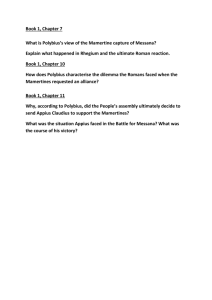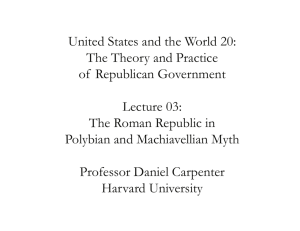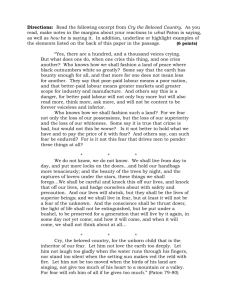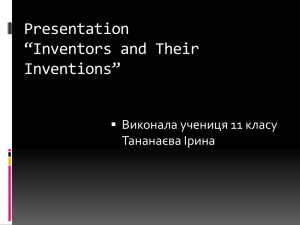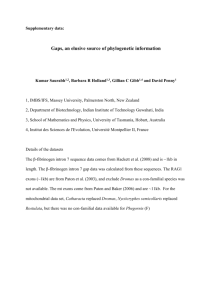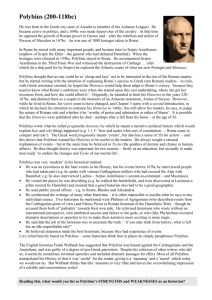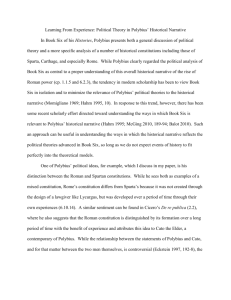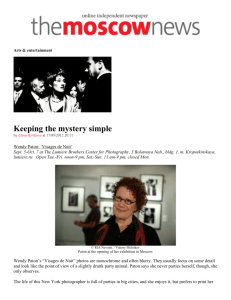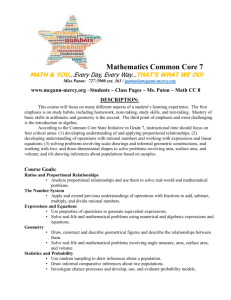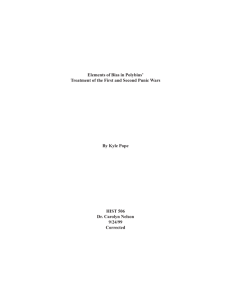WR Paton - FW Walbank - ChR. habiCht, Polybius, Histories, Book 1
advertisement
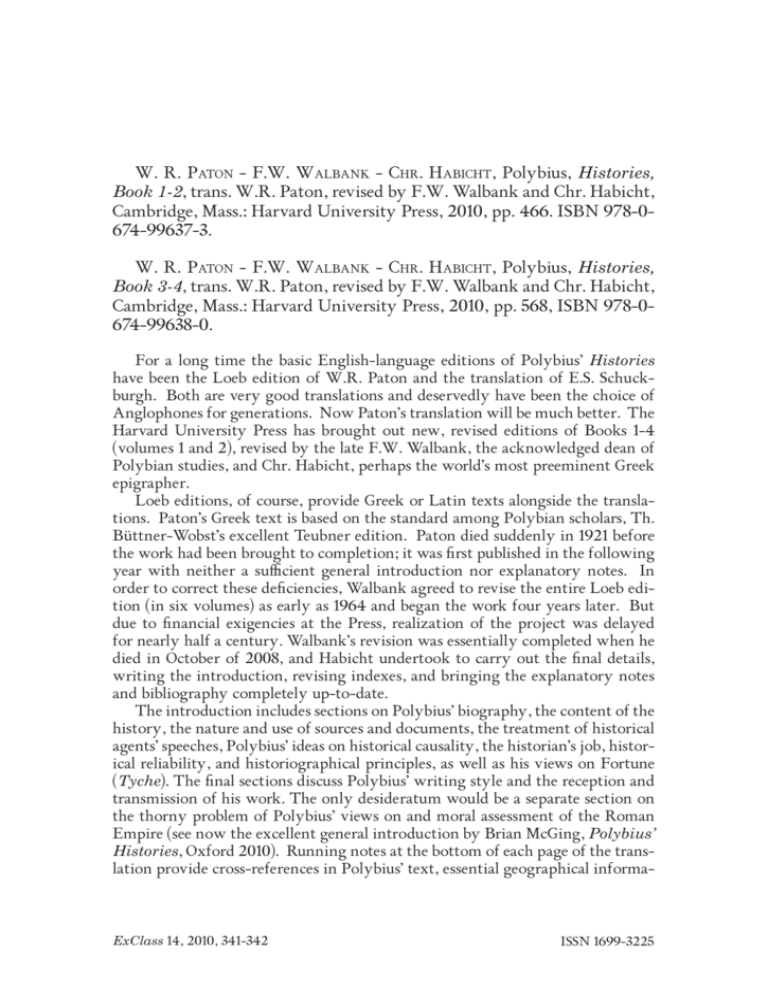
W. R. Paton - F.W. Walbank - Chr. Habicht, Polybius, Histories, Book 1-2, trans. W.R. Paton, revised by F.W. Walbank and Chr. Habicht, Cambridge, Mass.: Harvard University Press, 2010, pp. 466. ISBN 978-0674-99637-3. W. R. Paton - F.W. Walbank - Chr. Habicht, Polybius, Histories, Book 3-4, trans. W.R. Paton, revised by F.W. Walbank and Chr. Habicht, Cambridge, Mass.: Harvard University Press, 2010, pp. 568, ISBN 978-0674-99638-0. For a long time the basic English-language editions of Polybius’ Histories have been the Loeb edition of W.R. Paton and the translation of E.S. Schuckburgh. Both are very good translations and deservedly have been the choice of Anglophones for generations. Now Paton’s translation will be much better. The Harvard University Press has brought out new, revised editions of Books 1-4 (volumes 1 and 2), revised by the late F.W. Walbank, the acknowledged dean of Polybian studies, and Chr. Habicht, perhaps the world’s most preeminent Greek epigrapher. Loeb editions, of course, provide Greek or Latin texts alongside the translations. Paton’s Greek text is based on the standard among Polybian scholars, Th. Büttner-Wobst’s excellent Teubner edition. Paton died suddenly in 1921 before the work had been brought to completion; it was first published in the following year with neither a sufficient general introduction nor explanatory notes. In order to correct these deficiencies, Walbank agreed to revise the entire Loeb edition (in six volumes) as early as 1964 and began the work four years later. But due to financial exigencies at the Press, realization of the project was delayed for nearly half a century. Walbank’s revision was essentially completed when he died in October of 2008, and Habicht undertook to carry out the final details, writing the introduction, revising indexes, and bringing the explanatory notes and bibliography completely up-to-date. The introduction includes sections on Polybius’ biography, the content of the history, the nature and use of sources and documents, the treatment of historical agents’ speeches, Polybius’ ideas on historical causality, the historian’s job, historical reliability, and historiographical principles, as well as his views on Fortune (Tyche). The final sections discuss Polybius’ writing style and the reception and transmission of his work. The only desideratum would be a separate section on the thorny problem of Polybius’ views on and moral assessment of the Roman Empire (see now the excellent general introduction by Brian McGing, Polybius’ Histories, Oxford 2010). Running notes at the bottom of each page of the translation provide cross-references in Polybius’ text, essential geographical informa- ExClass 14, 2010, 341-342 ISSN 1699-3225 342 C.B. Champion: W.R. Paton • F.W. Walbank • Chr. Habicht: Polybius... tion, pertinent epigraphical evidence, references to key modern scholarship, and pointers to the detailed discussions in Walbank’s great commentary (in three volumes). The vast erudition of Walbank and Habicht are frequently apparent in their silent corrections of Paton. For example, at 1.37.4-5, on the rising of the constellations Orion and Sirius, Paton’s nonsensical note that Sirius rises in July, Orion in December, is replaced by the correct interval between the rising of the two constellations as approximately from 4 to 28 July (255 BCE). I have one quibble, however, about the translation of 1.11.1-2. Following Paton, Walbank and Habicht have the popular assembly at Rome take the momentous decision to cross to Sicily under arms in 264, after the Senate deferred, mired in a moral quandary. Polybius’ Greek (hoi de polloi) is actually ambiguous, making the reader decide whether he is referring to a majority in the Senate or in the comitia that took the decision (see my discussion in the forthcoming collection of papers in Walbank’s honor, proceedings of a 2007 conference held at the University of Liverpool, B. Gibson - Th. Harrison, eds., The World of Polybius: Essays in Honour of F. W. Walbank, Oxford). Overall the quality of the volumes is superb; they are everything we should expect from two scholars of such titanic stature. Anyone with an interest in Polybius, Roman republican history, the Hellenistic world, or ancient Greek historiography will eagerly await subsequent volumes. Craige B. Champion Syracuse University cbchamp@maxwell.syr.edu ExClass 14, 2010, 341-342
